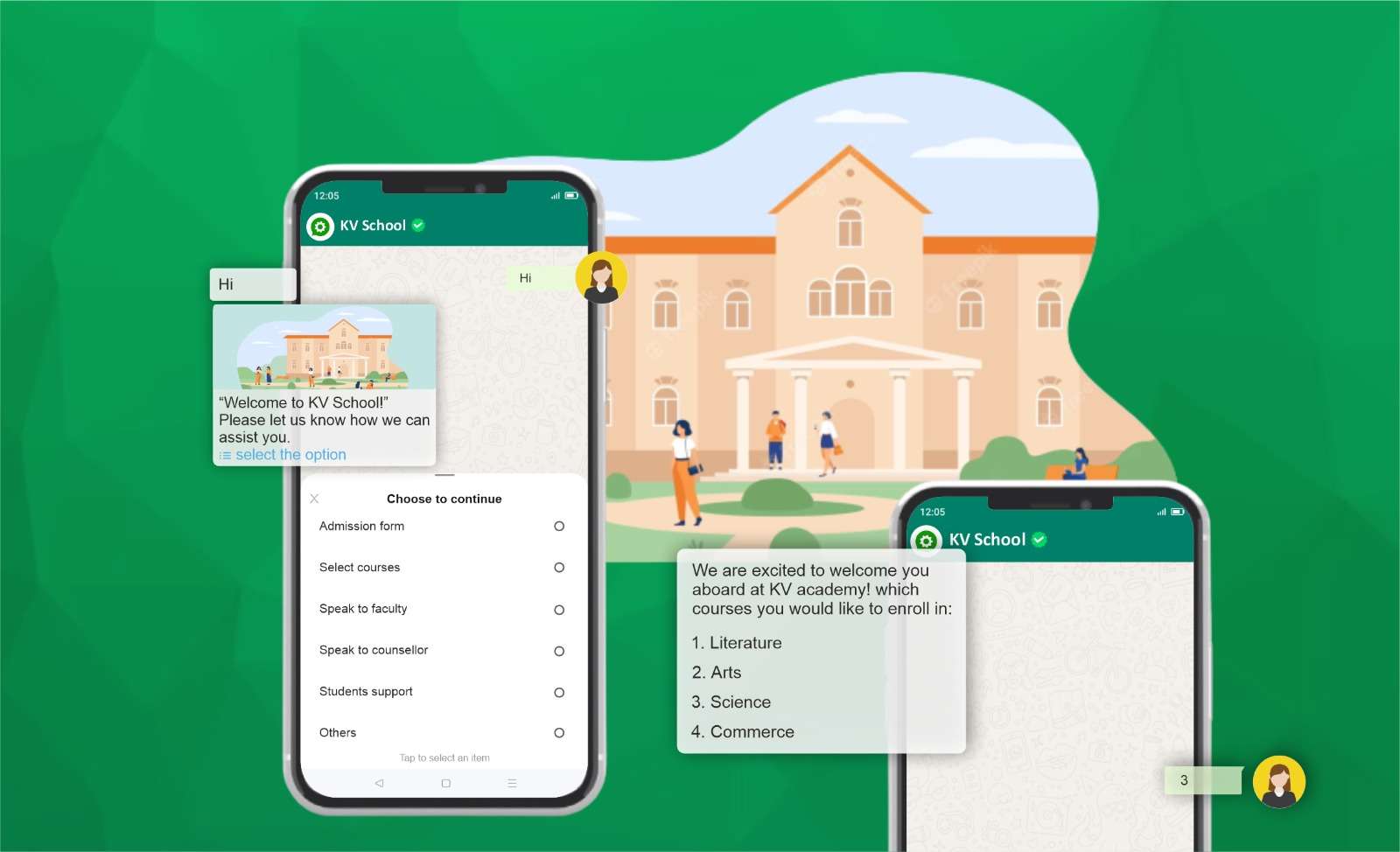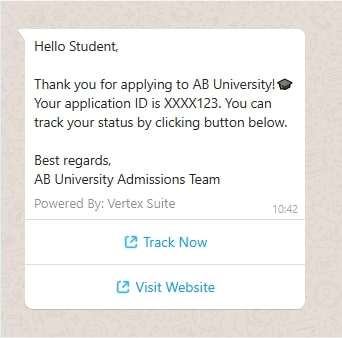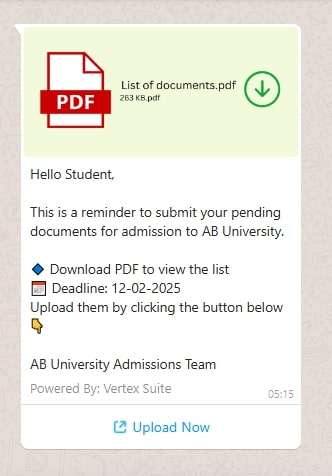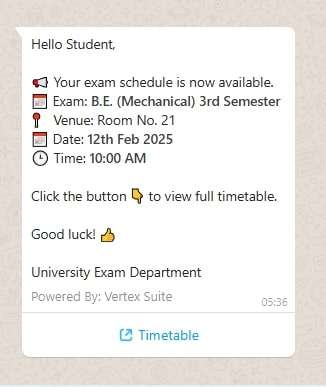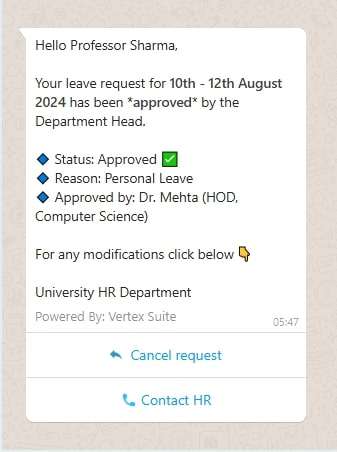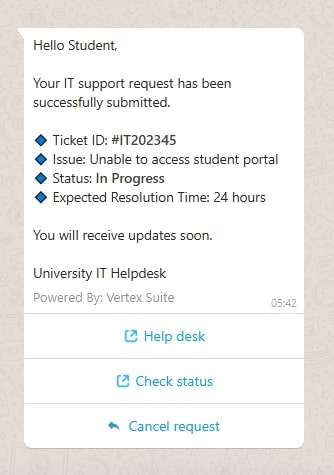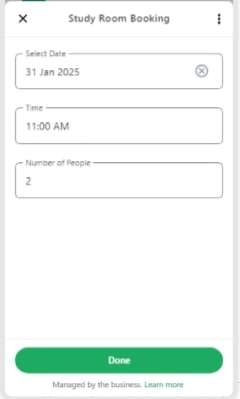The academic ambience is challenging the current operations of university and college management to cope up with the changing students and administration’s expectations.The significant inefficiencies and delays in existing IT infrastructure not only raise performance and security concerns but also create an avalanche of challenges that demand transformative technology and automation to revolutionize operations and streamline university management.
Universities often reflect the higher education standards but lacks the updated technology to stay relevant. This needs to be addressed to meet the changing learning environment of remotely or hybrid settings and check what are the possibilities to improve the learning experience and faculty management.
Universities must address inefficiencies in internal administration and faculty management in addition to enhancing the educational experience. Outdated systems and manual methods make it difficult to manage departments, faculty workloads, allocate resources and coordination between departments. Lack of automation not only slows decision-making but also reduces overall institutional efficiency. Enhancing internal operations and academic delivery through smart management solutions and digital transformation is crucial to building a real modern and functional university.
This blog examines the main obstacles universities encounter and how resolving them is essential to revolutionize the educational process, from slow automation adoption to inadequate resource management.
Let’s see the real world scenarios and challenges faced by universities regarding IT, diving deeper into actual operational hurdles and situations that have been observed.
Technology Challenges Faced by Universities Today
1. Outdated IT Infrastructure
I. Many universities rely on legacy systems that are incompatible with modern technologies like cloud computing or AI tools.
II. Outdated hardware and software often experience downtime and inefficient performance.
III. Universities also rely on different software for admissions, payment collections, student information, learning management etc. There is no unified platform and lacks sync in communication.
2. Cybersecurity Threats
I. Higher education institutes and universities are prime targets for cyberattacks due to personal information and amount of research data it stores.
II. Common threats include ransomware, phishing, data breaches, weak access control, which can disrupt operations and damage reputation.
3. Insufficient IT Resources
I. There are still universities lack adequate IT teams to manage complex systems.
II. Management should understand the skills gap in areas like cybersecurity, cloud management and AI integration.
III. Shortage of IT skilled professionals to manage and maintain complex systems.
4. Scalability Issues
I. Sudden surges in demand during admissions, online exams, results declaration can overwhelm existing IT systems.
II. Many universities struggle in server capacity for storing huge data files.
5. Hybrid and Remote Learning
I. Sometimes providing the necessary infrastructure for online learners and hybrid settings becomes challenging.
II. Ensuring consistent access to online platforms for students and faculty is a persistent challenge.
6. Data Management Challenges
I. Every year universities manages huge amount of datalike academic records, new admissions, research outputs, financial data is complex.
II. Universities often lack data analytics tools to derive actionable insights.
III. Lack of centralized data repositories for storing academic and administrative records securely.
IV. Limited use of big data analytics for trend analysis, enrollment forecasting and decision-making.
7. User Support and Helpdesk Issues
I. Providing 24*7 IT support to students, faculty and staff is resource-intensive.
II. Slow resolution times for IT issues can disrupt learning and administrative operations.
III. Frequent IT supports request for troubleshooting software and hardware issues.
IV. Sometimes the modern software needed for improving management becomes difficult to train non tech savvy staff.
8. Compliance and Regulations
I. Universities must comply with regulations and other data privacy laws to prevent exposure of private data.
II. Ensuring compliance across all IT systems is a major challenge.
9. Licensing and Software Management
I. Even if the software is purchased to optimize work process but managing license for various tools, software is a task.
II. Need to track renewal of license and software updates.
III. Universities often tie-up with software vendors for long term making them difficult to switch to better alternatives.
Overcoming Obstacles in Higher Education using WhatsApp Business API
WhatsApp Business API is bringing a change that is going to resolve such obstacles effectively to address the IT and management issues that colleges and universities encounter. With the help of this platform, universities can automate administrative procedures, improve communication and give management, faculties and students a seamless experience. Universities would be able to increase engagement, decrease workload and boost operational efficiency by implementing AI-driven chatbot —all without the need for complicated or bulky software.
Universities can use the WhatsApp Business API to:
I. Respond to students inquiries instantly especially during time of admissions and without the need for human intervention.
II. Send customized alerts for significant announcements, deadlines and updates.
III. Automate commonly asked questions (FAQs) 24*7 about courses, tests, admissions, fees and results.
IV. Simplify internal department and faculty management workflows.
V. Students can fill application within WhatsApp, WhatsApp can handle documents, applications and student records securely without the need for human processing.
VI. Enhance student support services by using AI chatbot to provide real-time assistance.
Enhancing Outdated IT Resource with Automated Communication
1. Process Automation &Unified Communication
I. Use Case: WhatsApp can replace disintegrated systems for admissions, payments, student records etc. and provide a single platform for all kind of interactions.
II. Use Case: Students can submit application forms, documents, check certificates, track ID, reducing paperwork delays, directly via WhatsApp.
2. Secured Communication & User Authentication
I. Use Case: WhatsApp Business API guarantees end-to-end encryption, meaning all messages remain private and unbreachable. It follows Meta’s strict data protection policies henceall messages exchanged between universities and students remain encrypted.
II. Use Case: WhatsApp ensures secure access to student portals, fee payments and academic records without endangering any data using OTP-based logins, two-factor authentication (2FA) and verified business accounts.
3. AI Chatbot for IT Support & Automation
I. Use Case: Universities can use WhatsApp AI chatbot to resolve common IT queries like:
-> "How do I reset my student portal password?"
-> "My university email is not working. What should I do?"
-> "Track ticket status and resolution updates"
This reduces the workload on IT teams, allowing them to focus on critical issues instead of repetitive queries.
4. Smart Notifications & Digital Record-Keeping
I. Use Case: By using AI chatbot for collecting student enrolment details, courses preferences and feedbacks, universities can analyse insights and trends.
II. Use Case: Use WhatsApp to notify students of pending fees, attendance shortage. Professors can ask chatbot to check student attendance records.
5. Simplifying Licensing & Software Management with a Centralized WhatsApp Dashboard
I. Use Case: WhatsApp Business API can replacecostly third-party tools by handling communication, approvals, notifications and workflow automation in one platform.
II. Use Case:
1. Tasks like admissions, fee collection, attendance tracking, faculty approvals, and student support can be fully managed via WhatsApp, removing dependency on expensive ERP and management systems
2. WhatsApp API can integrate with university databases, allowing departments to operate from a single centralized platform without requiring frequent software updates or renewals.
3. WhatsApp API can replace costly ERP systems for managing admissions, fees, attendance etc. from a single integrated platform.
Use Cases: How Universities Can Leverage WhatsApp Business API
WhatsApp Business API Templates for Universities:
1. Admission & Application Process
Use Case: Automatically respond to student inquiries, application status and document submission.
2. Fee Payment & Financial Assistance
Use Case: Automate fee payment reminders, transaction confirmations and scholarship updates.
3. Exam & Results Notifications
Use Case: Notify students about exam schedules, hall tickets and results.
4. Faculty & Internal Administration
Use Case: Automate faculty communication, approvals and meeting schedules via WhatsApp.
5. Faculty Data Access & Departmental Requests
Use Case: Faculty Checking Student Performance Data via WhatsApp
6. IT Helpdesk & AI Chatbot for IT Support
Use Case: IT Support Ticket Confirmation via WhatsApp
7. Automated Form Filling & Booking Via WhatsApp
Use Case: Effortless Study Room Booking via WhatsApp Interactive Forms.
WhatsApp Business API is a powerful and cost-effective solution that will allow universities to:
- Automate communication
- Reduce administrative workload
- Provide real-time notifications
- Improve student and faculty engagement
- Ensure secure and efficient management
With AI-powered chatbot and automated messaging, universities can enhance operational efficiency, reduce response time and create a seamless digital experience—without requiring complex software integration.


